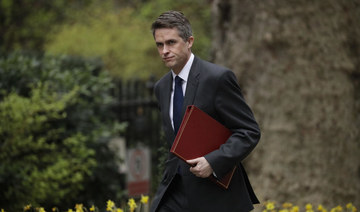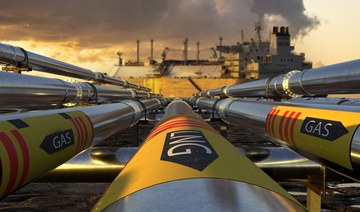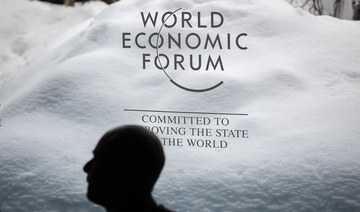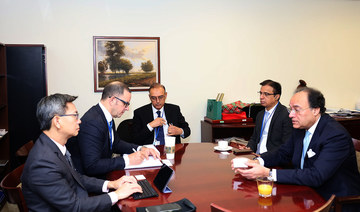WASHINGTON: Donald Trump stepped up his battle against Huawei Wednesday, effectively barring the Chinese telecom giant from the US market and adding it to a blacklist restricting US sales to the firm amid an escalating trade war with Beijing.
An executive order signed by the president prohibits purchase or use of equipment from companies that pose “an unacceptable risk to the national security of the United States or the security and safety of United States persons.”
“This administration will do what it takes to keep America safe and prosperous and to protect America from foreign adversaries,” White House spokeswoman Sarah Sanders said.
A senior White House official insisted that no particular country or company was targeted in the “company- and country-agnostic” declaration.
However, the measure — announced just as a US-China trade war deepens — is widely seen as prompted by already deep concerns over an alleged spying threat from Huawei.
“Restricting Huawei from doing business in the US will not make the US more secure or stronger; instead, this will only serve to limit the US to inferior yet more expensive alternatives,” Huawei said in a statement.
“In addition, unreasonable restrictions will infringe upon Huawei’s rights and raise other serious legal issues,” it said.
The Commerce Department followed up with a more direct hit on the tech giant, adding it to a blacklist that will make it much harder for the firm to use crucial US components in its array of phones, telecom gear, databases and other electronics.
Commerce’s Bureau of Industry and Security (BIS) said it would add Huawei and its affiliates to its “entity list” over alleged Iran sanctions violations.
The listing requires US firms to get a license from BIS for the sale or transfer of American technology to a company or person on the list.
“A license may be denied if the sale or transfer would harm US national security or foreign policy interests,” a Commerce Department statement said.
“This will prevent American technology from being used by foreign-owned entities in ways that potentially undermine US national security or foreign policy interests,” Commerce Secretary Wilbur Ross said.
Huawei did not immediately comment on the blacklisting.
US officials have been trying to persuade allies not to allow China a role in building next-generation 5G mobile networks, warning that doing so would result in restrictions on sharing of information with the United States.
US government agencies are already banned from buying equipment from Huawei, a rapidly expanding leader in the 5G technology.
Beijing was already furious about US moves to limit use of equipment from Chinese firms including Huawei and another company ZTE.
“For some time, the United States has abused its national power to deliberately discredit and suppress by any means specific Chinese enterprises, which is neither honorable nor fair,” foreign ministry spokesman Geng Shuang said ahead of Trump’s executive order.
“We urge the US side to stop the unreasonable suppression of Chinese enterprises on the pretext of national security and to provide a fair and non-discriminatory environment,” the spokesman said.
The US portrayal of Huawei as a national security danger dovetails with Washington’s wider complaint that Chinese companies are unfairly protected by the state, making fair trade impossible.
The move also threatens to further flare trade tensions just days after the US more than doubled tariffs on $200 billion of Chinese imports, which was met with a retaliation in kind by Beijing.
Washington and some European allies fear that Chinese economic expansion, particularly in the Belt and Road global infrastructure program, is part of a bid for geopolitical dominance.
Amid those worries, Huawei is portrayed as a Trojan horse that could leverage its ultra-rapid telecoms technology into a Chinese government spy network reaching deep into American society and business fields.
“Chinese telecom companies like Huawei effectively serve as an intelligence-gathering arm of the Chinese Communist Party,” Senator Cotton said after Trump’s emergency declaration.
“The administration is right to restrict the use of their products.”
So far, the US campaign to lobby other countries to turn their backs on Huawei has had mixed results.
Even Britain, one of Washington’s closest allies, is mired in debate over whether to follow the US lead or allow Huawei to develop the 5G networks.
On Tuesday, the chairman of the company, Liang Hua, visited London to insist that Huawei will “commit ourselves, to commit our equipment to meeting the no-spy, no back-door standards.”
Donald Trump ramps up battle against Chinese telecom giant Huawei
Donald Trump ramps up battle against Chinese telecom giant Huawei
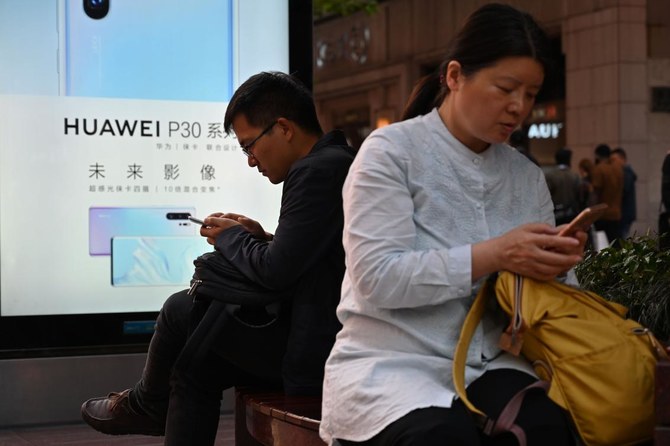
- ‘This administration will do what it takes to keep America safe and prosperous and to protect America from foreign adversaries’
- US officials have been trying to persuade allies not to allow China a role in building next-generation 5G mobile networks
TotalEnergies, OQ to launch $1.6bn LNG Bunkering project in Oman
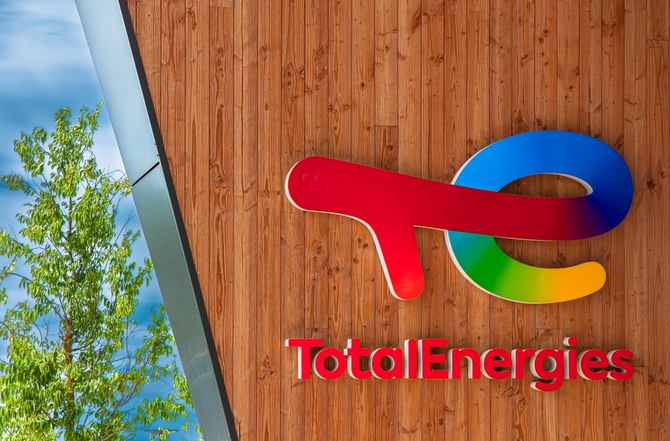
RIYADH: Oman’s Sohar Port is set to house a new $1.6 billion liquefied natural gas bunkering plant following an agreement inked between OQ and TotalEnergies.
Bunkering involves transferring LNG to a ship for use as fuel, offering a cleaner alternative compared to traditional methods such as marine gas oil and heavy fuel oil.
TotalEnergies will provide 80 percent of the investment, with OQ contributing the remaining 20 percent through their joint venture, Marsa Liquefied Natural Gas LLC.
The Marsa LNG project, the first of its kind in the Middle East, is poised to have significant economic implications. It’s expected to bolster Oman’s treasury revenues and enhance local value through collaborative local investments.
Patrick Pouyanne, chairman and CEO of TotalEnergies, said: “We are proud to open a new chapter in our history in the Sultanate of Oman with the launch of the Marsa LNG project, together with our partner OQ, demonstrating our long-term commitment to the country.”
He explained that the innovative project illustrates their pioneer spirit and showcases the relevance of their integrated multi-energy strategy, with the ambition of being a responsible player in the energy transition.
“By paving the way for the next generation of very low emission LNG plants, Marsa LNG is contributing to making gas a long-term transition energy,” Pouyanne added.
The plant, powered entirely by solar energy, is expected to contribute to the reduction of carbon emissions and the shipping industry’s overall carbon footprint. Notably, it is projected to emit less than 3 kg of carbon dioxide per oil equivalent barrel.
“The Marsa LNG project is one of the many initiatives that reflect Oman’s goal of achieving carbon neutrality by 2050,” Minister of Energy and Minerals Salim Al-Aufi said.
Minister affirms Riyadh as global solutions hub ahead of special meeting of World Economic Forum
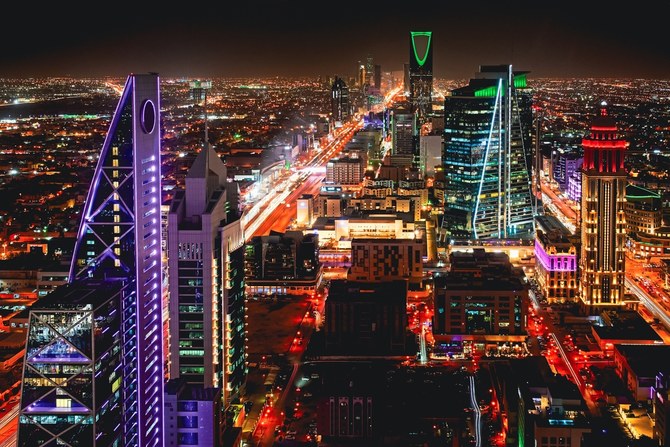
RIYADH: Riyadh has emerged as a beacon of “thought leadership, action, and solutions,” stated one of Saudi Arabia’s top officials as the Kingdom’s capital prepares to host the World Economic Forum.
Faisal Al-Ibrahim, the minister of economy and planning, made the comments ahead of the summit on global collaboration, growth, and energy for development, slated for April 28 to 29, which aims to empower leaders from both public and private sectors to tackle mutual global challenges.
According to the WEF website, the meeting will also advance key forum initiatives in the region and beyond as it aims to bridge the growing North-South global divide, which has further widened on issues such as emerging economic policies, the energy transition and geopolitical shocks.
“The Crown Prince’s patronage of the World Economic Forum Special Meeting in Riyadh is a testament to our leadership’s determination to convene the world to take action and expand global collaboration on the critical topics of our time,” said Al-Ibrahim in a post on X.
He welcomed global leaders to this pivotal moment for social, economic, and human development, urging them to “build bridges toward a secure, stable and sustainable future.”
Saudi Arabia’s Diriyah Co. unveils its mixed-use commercial office and retail offering Zallal
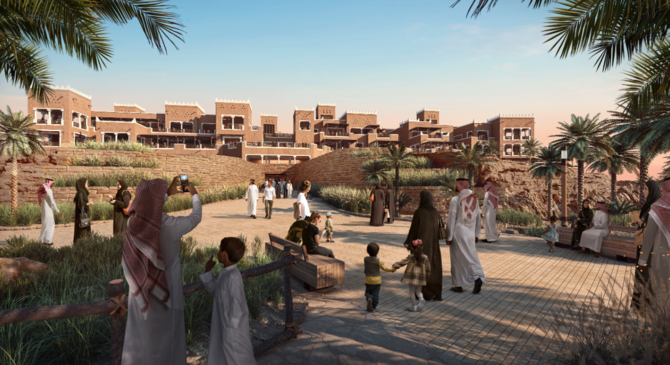
RIYADH: Saudi Arabia’s Diriyah Co. has shared plans for its inaugural mixed-use commercial office and retail development Zallal, set to launch in the Bujairi district during the first half of 2025.
This project will feature two low-rise office buildings with a combined leasable space of around 6,000 sq. m. Additionally, there will be 12 mixed retail and food and beverage outlets spread across about 8,000 sq. m.
Located next to the popular Bujairi Terrace, Zallal will benefit from proximity to a venue that attracts thousands of visitors daily.
The development is also located close to the recently completed Diriyah Art Futures and the soon-to-open Bab Samhan Hotel.
Jerry Inzerillo, group CEO of Diriyah Co, said: “We have been delighted with the hugely positive reception that Zallal has had from the commercial sector, and we are in advanced negotiations with international and local companies eager to benefit from the central location in the heart of Diriyah and the diverse range of accessible retail, F&B and office space available.”
He added: “With construction well underway, Zallal maintains the exciting momentum at Diriyah, and when open, will benefit from the thousands of daily visitors to Bujairi Terrace becoming the latest completed precinct in our rapidly developing masterplan.”
Mitsui says no decision yet on ADNOC LNG project tie-up after Nikkei report

TOKYO: Japan’s Mitsui & Co. said on Tuesday nothing has been decided on a liquefied natural gas project in the UAE, after the Nikkei reported it was teaming up with Abu Dhabi National Oil Co. on it.
The Nikkei reported ADNOC would have a stake of around 60 percent and Mitsui 10 percent of the $7 billion LNG project at Ruwais, adding Mitsui’s investment is estimated to be several tens of billions of yen.
Other oil majors Shell, BP and Total Energies are also expected to invest, the report said.
A Mitsui spokesperson said nothing had yet been decided when asked about the report. ADNOC, BP and Shell declined to comment. TotalEnergies did not immediately respond to a request for comment.
ADNOC has big ambitions in gas and LNG, which along with renewable energy and petrochemicals, it sees as pillars for its future growth.
Demand for natural gas soared as Europe scrambled to secure supplies to replace Russian gas in the wake of Moscow’s invasion of Ukraine last year.
The planned Ruwais LNG project, to the west of Abu Dhabi city, will help ADNOC reach its goal of doubling its LNG production capacity. It currently has liquefaction capacity of about 6 million metric tons per annum at its Das Island facility.
The Ruwais plant will have electric-powered processing facilities and run on renewable and nuclear grid power, making it one of the lowest carbon intensity LNG facilities globally, ADNOC has said. It will have two 4.8 mtpa LNG liquefaction trains when completed.
ADNOC said in March it had issued a limited notice to proceed for early engineering, procurement and construction on the Ruwais LNG project to a consortium led by Technip Energies and including JGC Corporation and National Petroleum Construction Co. A final investment decision is expected this year.
ADNOC has since last year signed several LNG supply deals, including two for LNG from the Ruwais project, expected to begin commercial operations in 2028.
ADNOC has eyed acquisitions of foreign companies in part to help boost its gas portfolio.
Pakistan eyes new IMF loan by early July, finance minister says
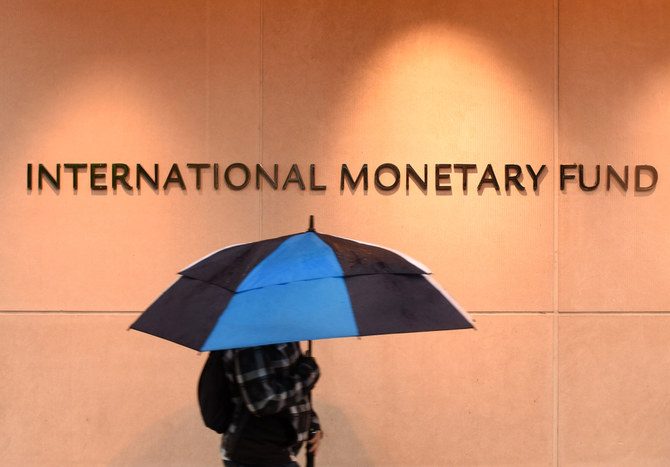
ISLAMABAD: Pakistan could secure a staff-level agreement on a new long-term larger loan with the International Monetary Fund by early July, its finance minister said on Tuesday, according to Reuters.
The country’s current $3 billion arrangement with the fund — which it secured last summer to avert a sovereign default — runs out in late April.
The $350 billion South Asian economy faces a chronic balance of payment crisis. The government is seeking a larger, long-term loan to help stabilize economic activity and financial markets so it can execute long-due, painful structural reforms.
If secured, it would be the 24th IMF bailout for Pakistan.
“We are still hoping that we get a staff-level agreement by June or early July,” Finance Minister Muhammad Aurangzeb told a conference in Islamabad.
He returned from Washington last week after leading a team to attend the IMF and World Bank’s spring meetings.
“We had very good discussions in Washington,” he said.
He said he did not know at this stage the volume and tenure of the longer program, although he has previously said that he was looking for at least a three-year bailout plan.
Both sides have said they were already in discussions for the new loan. A formal request, however, will be made once the current facility expires, with the IMF board likely to meet late this month to approve the second and last tranche of the current support scheme.
The economy is expected to grow by 2.6 percent in the fiscal year 2024, the finance minister said, adding that the inflation was projected at 24 percent, down from 29.2 percent in fiscal 2023. It touched a record high of 38 percent last May.
Aurangzeb said structural reforms would include increasing the government’s tax revenue-to-GDP ratio to 13 percent to 14 percent in next two or three years from the current level of around 9 percent, reducing losses of state-owned enterprises through their privatization, and better management of the debt-laden energy sector.




